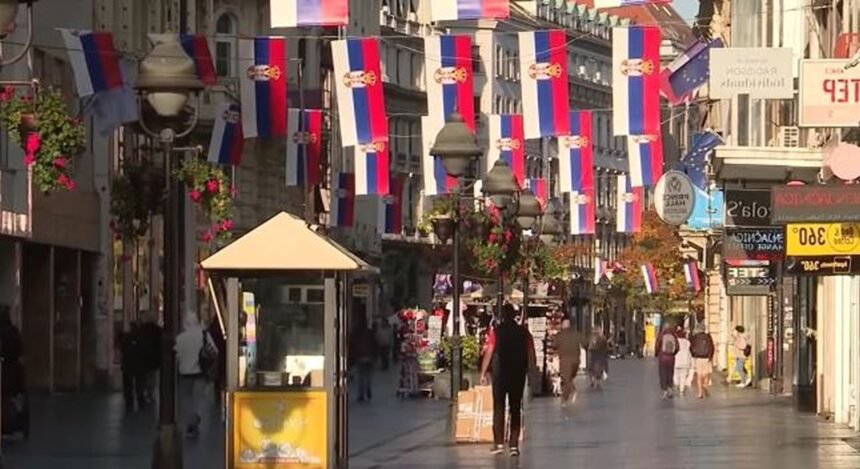The “Serb World” project goes beyond Serbia’s current borders, aiming to expand influence over neighboring states.
A report by the Helsinki Committee for Human Rights, edited by activist Sonja Biserko, states that Russia has skillfully exploited the frustration of the Serbian elite following the defeats of the 1990s and the loss of Kosovo.
The report highlights that Serbia’s state-backed “Serb World” initiative under Aleksandar Vučić seeks to rewrite history through control over media, education, cultural institutions, and spiritual connections with Serbs across the region.
“…This project would not be possible without Western tolerance. In attempts to keep Serbia on their side, Western powers often overlooked Belgrade’s destructive role in Bosnia and Herzegovina, Montenegro, Kosovo, and North Macedonia. Such a policy of compromise strengthened the regime, granting it international legitimacy without real reforms.”
According to the report, Serbia in 2025 is authoritarian, corrupt, and maintains a false neutrality, while facing student protests challenging its policies. Vučić’s close ties with Putin’s Russia and China further underscore Serbia’s geopolitical ambitions.
The report criticizes the European Union, especially Germany, for consistently taking a positive stance toward Vučić in the name of stability, even amid regional destabilization, including the terrorist attack in Banjsk, Zvečan.
“…How long can this illusion last as Serbia deepens its authoritarianism and geopolitical games threatening EU interests, exemplified by Vučić’s visits to Moscow and Beijing? Protests will not stop, and state violence may increase. A systemic shift in the EU’s approach, particularly Germany’s, is needed to break the perception that the EU is weak in the face of Vučić’s authoritarianism.”
The report also emphasizes the role of the Serbian Orthodox Church as a key actor in expanding Serbo-Russian influence, especially in Kosovo. An example of this influence is the meeting between Serbian Patriarch Porfirije and Russian President Vladimir Putin on April 22, 2025, in Moscow.







